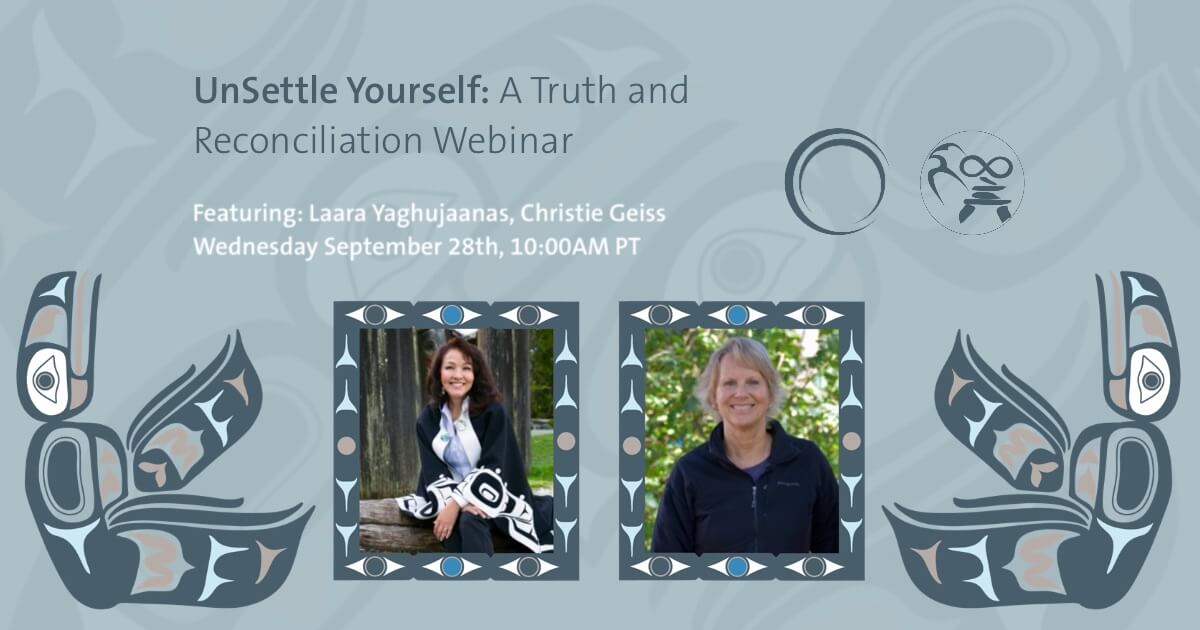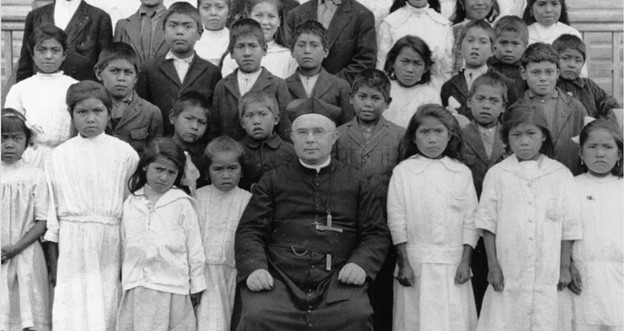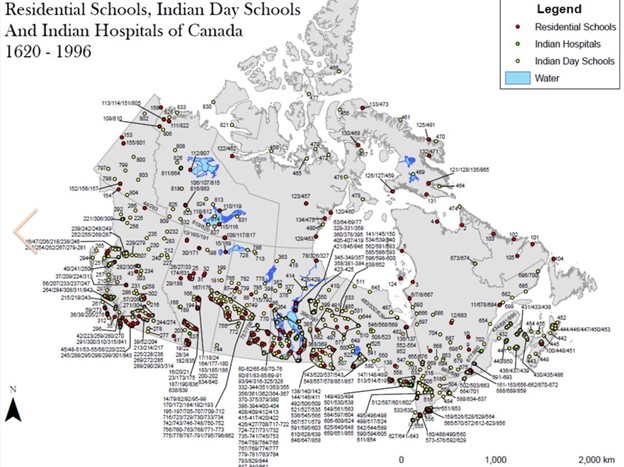
UnSettle Yourself: A Truth and ReconciliAction Webinar Recap
We’re happy to have had Laara, Yaghujaanas, Indigenous Consultant, speak in our UnSettle Yourself: A Truth and ReconciliAction Webinar. In case you missed it or would like a recap, you can view the recording or read the recap below.
Note: This is a gentle reminder that the topics being covered in the webinar can be sensitive or emotionally triggered. Please look after yourself, and do not hesitate to speak with an Elder, counsellor, friend, or family member if need be.
UnSettle Yourself
What does “unsettling yourself” mean? It’s a way to be able to capture and talk about what we’re experiencing in Canada and the things you can do to support reconciliAction in your community for the benefit of current and future generations. This webinar will guide you through the true history of Canada, how to advance reconciliation, and how you can do that work as well.
Canada’s First Peoples
It’s first important to understand the lands we’re on and the people who were here previously, and in Canada, they are the First Peoples. Archaeological evidence has documented that the First Peoples have lived and thrived on these lands for 1400-1800 years, long before the Roman Empire and the origins of western history.
In these communities, complex political and economic systems were integrated into all levels of their society. They had an elegant shared leadership system where many people had a say in the democracy and decisions that affect them. Individuals were able to voice their ideas on the things they want to see in their communities for the current and future generation.
As collectivists, as opposed to individualists, they looked at the interconnection of all things and all people to ensure that they had an understanding of the care and respect that they needed to carry. They always made sure that this communal and collective value set was one that had everyone being taken care of, respected, and connected, especially children, women, and elders. In fact, women were the ones who held important powers and stewardship. As well, elders played an important role, not only as knowledge keepers, but also helping promote and develop their youth.
In the long term, their community focused on seven generations and looked at thousands of years into the future. For instance, the Haida land and water strategy is a thousand-year strategy; not a four-year strategy, or two-year election cycle strategy.
Unfortunately, the genocide and colonization of the western world eroded these systems and values, taking away the knowledge and customs that would typically be passed down from generation to generation, and robbing First Peoples of their identities.
Origins of Colonization & the Indian Act
An important premise to reconciliation and reconciliaction is to understand and recognize the harm that has been done in our history. The whole idea of racism as a social construct, dehumanizing others, and civilization being the primary driver of all societies came from the Ancient Greeks. When Ancient Greece had challenges with their own lands and couldn’t provide and take care of their people to the degree that they like, they developed a system that dehumanized the people that lived next to them, labelling them as “barbarians”, “savages”, “lawless”, and “infantilized” to distinguish that they are less than human and justified Ancient Greece’s right to take what’s “theirs”. This began a legacy of colonization that was passed on from the Ancient Greeks to the Romans to the Brits and to the western world, all to enrich their own nations. This whole practice of civilization then became entrenched by the churches, working hand-in-hand with the state and ruling monarchs.

In 1630, here in Canada, missionaries and residential schools were established to rip apart children from their parents and forcibly integrate them into substandard education, as the priests and nuns working had no educational training. In 1763, King George III recognized and asserted the Royal Proclamation, recognizing First Nations as partners with Canada, which was a positive development for First Nations and the country. However, within 50 years after 1763, the masses were being informed by eugenics and scientific racism. Citizens asked local governments to move First Nations out of their own land and enact colonization. From 1820 and 1927, several acts and policies were created to do just that.
All of it came together to become the Indian Act, developed by Sir John A McDonald, who was a firm believer in eugenics. These eugenic-inspired laws and policies removed all traces of the First Nation’s traditional governing system, which was built on matriarchal systems and shared leadership. Instead, the Indian Act forced upon a patriarchal system, stripping away all agency of women, and imposed a chief and council system that was poorly functioned. To this day, little has changed, as the Canadian government still holds control of all First Nation’s lands and resources.
Intergenerational Residential Schools Syndrome
The horrific acts undertaken by the people who were in charge of residential schools included prohibiting First Nations to speak their own language, neglection, child labour used to build facilities, immoral forms of discipline, such as strapping, whipping, beating with fists, using electric chairs, and tying them to beds or locking them in basements for hours or even days, feeding them spoiled food or not being fed at all, emotional and physical abuse, medical experimentation, psychological abuse and humiliation for minor issues, poor medical treatment, and sexual abuse, violence, and rape. Some children were beaten to death, and some were forced to bury other children. Rather than anyone stepping in, those in control would let these assaults happen and perpetuate them. It wasn’t until 1996 that the last residential school closed.
As a result, it has crippled the social, cultural, and educational development of First Nations with many of them ill-prepared to join their communities and terribly underprepared to deal with their own children. This intergenerational residential schools syndrome continues to be passed along to future generations.

Positive Paths with First Peoples
There is some light for First Nations. In 1982, the Canadian Constitution (Section 35) revived the intent of the Royal Proclamation (1763) that recognized the “unique status and rights of First People in Canada and reaffirmed First Nations ‘partnership’ with Canada.” The Transformative Change Accord and New Relationship Agreement in 2005 brought together the Government of BC, First Nations and the Government of Canada to achieve the goals of closing the social and economic gap between Indigenous people and non-Indigenous people.
The United Nations Declaration on the Rights of Indigenous Peoples (UNDRIP) in 2007 is a path to reconciliation covering all facets of the minimum human rights of First Peoples, such as culture, identity, religion, language, health, education, and community, which the Truth and Reconciliation Commission of Canada (TRC) confirms as the framework for reconciliation. In 2015, Truth and Reconciliation Commission of Canada: Calls to Action was published, which is intended to rectify the wrongs of our Canadian history. And In 2019, the BC government used UNDRIP’s framework to enact the Declaration on the Rights of Indigenous Peoples Act (DRIPA).
Reconciliation: Lessons Learned
When we look at examples around the world, we see Germany’s response after the genocide of the Jewish people. In the aftermath, the German government returned seized property back to their owners, set up a $60 billion ‘make it good again’ program to make reparations, private companies and towns also made reparations, history classes on the Holocaust were mandated, denying the Holocaust was made illegal, and museums, sites, and memorials called “sites of memory” were created, and every year, there is an annual commemoration.
Research done on Germany’s response to the wake of the acts of genocide showed that the first couple of generations couldn’t cope with facing it and thus, denied it. But it was the generations afterwards that recognized the wrongdoings and started taking action. Like in Germany, it’s so important in Canada for us to remember our true history and the horrible things that have been done to First Peoples, so that we make sure we provide a better legacy for our grandchildren ahead and we never repeat the same mistakes again.
Current Context: Anti-Racism
When we look at today’s society, we unfortunately still see systemic racism. And to “not be a racist” is not enough, and in fact, further perpetuates systemic racism. Not being a racist is a passive response that doesn’t require action or responsibility and puts you in a position to ignore the true history of Indigenous people and Canada and ignore the racist systems and inequality that exists today.
As the majority of the population of Canada will consist of minorities by 2036 (based on Statistics Canada), we have to embrace the huge diversity of who Canada is and we have to be anti-racist. When we look at anti-racism, it shifts our focus from the intent of our actions (“I didn’t mean to do that”) to what we should actually do. It is not enough to believe that you’re not racist because it won’t eliminate racism and racial inequalities. Instead, we have to work within ourselves, our network, our institutions, our governments to challenge racism in each decision that we make. The practice of anti-racism is an ongoing effort, and it’s everyone’s responsibility.
UnSettle Yourself & Make ReconciliAction Happen
You can start UnSettling yourself by recognizing the harms done in Canadian history – learn more about it, read UNDRIP, read the TRC Calls to Action, learn about the inequalities in our systems today – and apologize for those harms, help support healing, make ethical actions to change the beliefs of your family, community, organization, and take part in events that are designed to combat racial injustice. When we think about anti-racism, make space for diversity, empower diverse voices by letting them speak rather than speaking for them, and advocate for systemic change for laws, policies, and procedures. And lastly, be accountable to yourself, friends, and family and commit to what you say you’re going to do.
Recommendations for the Private Sector Leaders
For businesses, recognize the harms done in history and continue learning, apologize for those harms, create an apology, make it right through actions that are ethical and within the scope of professional responsibilities and abilities, change your company’s laws, policies, and procedures to make sure they consider diverse voices, histories, and experiences, and advance reconciliation and be anti-racist.
You can also develop relationships and work with those nations whose lands you work and live on to create positive change, consistent with their laws and ways of knowing and being, and celebrate First Nation culture within your organization. Most importantly, make sure you hold yourself and your company accountable for all of the actions you commit to doing.
UnSettle Yourself and Take Action
UnSettle your local governments. When we talked about how local settler populations forced local governments to do all these horrific acts and they became policies and laws and affected all of Canada, it’s the same way we can effect change today. Speak to your local government. Find those leaders that are anti-racist and support them. Support community development of First Nation, and advance anti-racism and reconciliation.
Whatever you do, commit to doing it. That kind of integrity as an individual, a company, a society needs to be made as a practice, as that is how we can shape a better path forward for everyone.
Walk with Tsleil-Waututh Nation on September 30
On National Truth and Reconciliation Day (September 30), the Tsleil-Waututh Nation community will be walking 8.5 kilometres from the former site of St. Paul’s Residential school, now the site of St. Thomas Aquinas Regional Secondary school to Tsleil-Waututh Nation reserve in North Vancouver. The purpose of this Pilgrimage is to honour all Residential and Day School survivors and loved ones who passed while creating a space for healing. The public is invited to create a wall of protection and line up on the sidewalks along Main St / Cotton Dr at Park and Tilford or 3rd St W from St. Andrews Ave to Chesterfield Ave.
About Laara Yaghujaanas
Laara Yaghujaanas, M.A., owns and operates Carden Consulting, which she established in 1997. Laara is from the yaghu ‘jaanas clan of the Haida Nation, and carries her great grandmothers name “Kun G aadaas”. Laara holds a master’s degree from Royal Roads University, was awarded the Royal Roads University Founders Award, has completed the Justice Institute Conflict Resolution and Negotiation course, is a CTT Certified Consultant (Level 2), a member of the Council of Native Development Officers (CANDO), a member of the New Relationship Trust Economic Development Support Team, and is an Advisor for the Indigenous Business Awards.
Laara has been conducting this type of educational Truth and Reconciliation workshop since 17 years ago with the help of elders from the Coast Salish nation territories. At Carden Consulting, she primarily works for and with First Nations in BC and Canada to support good governance, policy design and development, comprehensive community planning, legislation drafting, legislation with communities, membership codes, and custom election codes.
Resources:
Below you can find resources that have been mentioned in the webinar:
Research is Ceremony: Indigenous Research Methods by Shawn Wilson: https://www.amazon.ca/Research-Ceremony-Indigenous-Methods/dp/1552662810
Medicine Unbundled: A Journey Through the Minefields of Indigenous Health Care by Gary Geddes: https://www.amazon.ca/Medicine-Unbundled-Journey-Minefields-Indigenous/dp/177203164X
Truth and Reconciliation Commission of Canada: Calls to Action: https://www2.gov.bc.ca/assets/gov/british-columbians-our-governments/indigenous-people/aboriginal-peoples-documents/calls_to_action_english2.pdf
United Nations Declaration on the Rights of Indigenous Peoples (UNDRIP): https://www.un.org/esa/socdev/unpfii/documents/DRIPS_en.pdf
Declaration on the Rights of Indigenous Peoples Acts (BC) (DRIPA): https://declaration.gov.bc.ca/
Pilgrimage to commemorate the National Day for Truth and Reconciliation with Tsleil-Waututh Nation: https://twnation.ca/media-advisory-ndtr-2022/
Carden Consulting: https://cardenconsulting.com/


No Comments